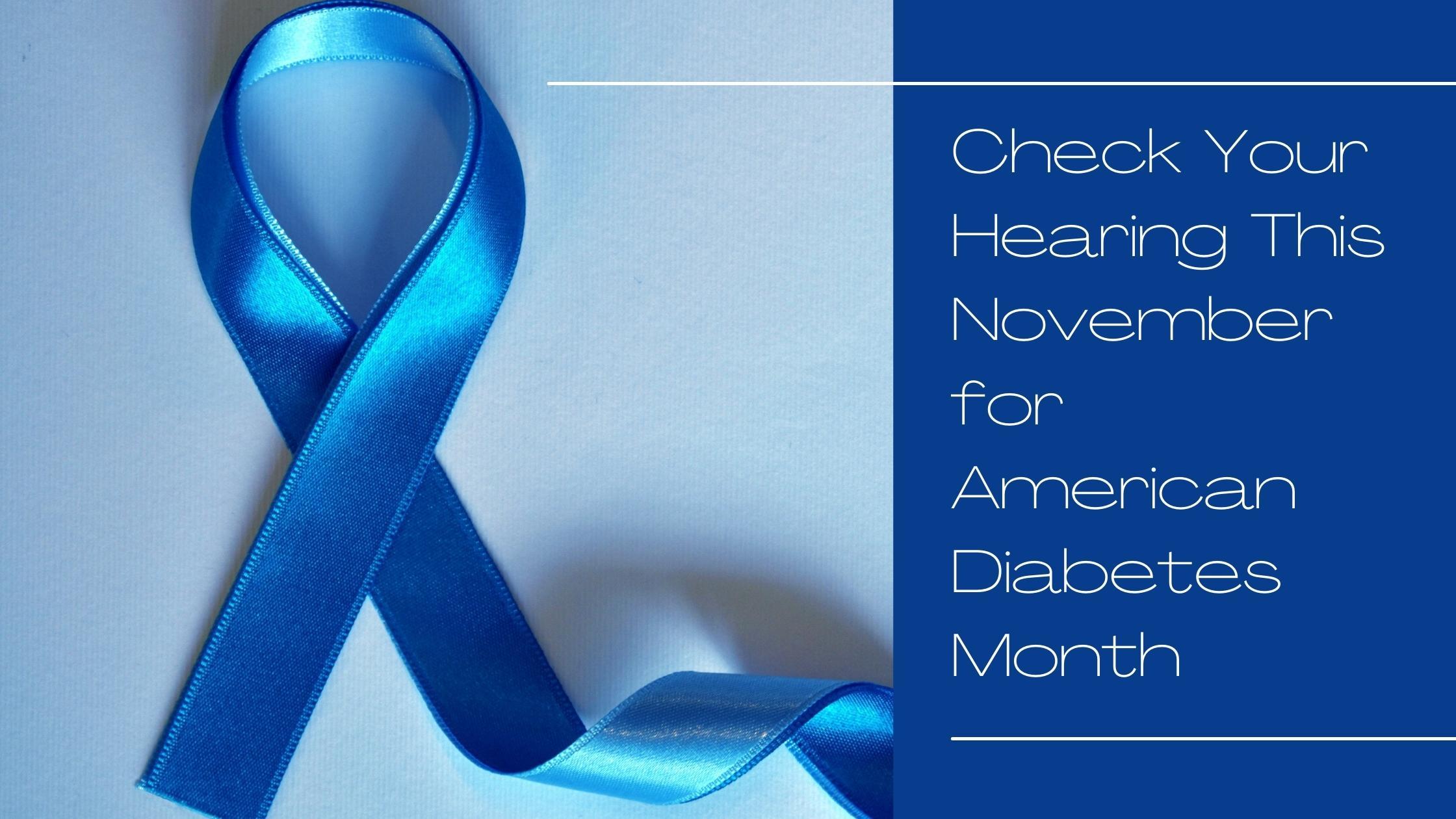
- Exploring the Genetic Landscape of Hearing Loss: Understanding the Role of Genetics - April 15, 2024
- The Hazards of Pretending to Hear - March 25, 2024
- Navigating the World of Cochlear Implants: A Comprehensive Guide - March 15, 2024
There are more than 30 million Americans with diabetes, and if that describes you too, you’ll want to keep an eye on your ears. Compared to non-diabetics, people with diabetes have a hearing loss risk that is more than twice as high. As a result, you should keep an eye on your hearing.
Having regular hearing evaluations with us might help detect the onset or progression of a hearing problem. Still, this American Diabetes Month, let’s take a closer look at the link between diabetes and hearing loss.
What is diabetes?
The body’s ability to create and manage insulin is impaired by diabetes. As a result, your body’s cells cannot use glucose as an energy source since it has built up in your bloodstream. There has been a 50% increase in people diagnosed with diabetes in the last decade.
A person with diabetes can have one of three types: type 1, type 2, or gestational diabetes. Both have glucose difficulties, although gestational diabetes usually goes away after the baby is born. A rise in blood sugar levels must be controlled in all three types.
In addition to causing vision loss and renal failure, diabetes also contributes to limb amputations, heart attacks, and strokes. Frequent urination, thirst, hunger, weariness, blurry vision, concentration difficulty, and healing troubles with infections are symptoms of a urinary tract infection.
A link between diabetes and hearing loss has been found
Several studies in recent years have studied the link between diabetes and hearing loss. People with diabetes are twice as likely to suffer from mild to moderate hearing loss as individuals without the disease. In diabetics, a recent study found that high-frequency hearing loss occurred at a rate of 54 percent, compared to 32 percent for non-diabetics.
These study findings were confirmed by 2012 research published in the Journal of Endocrinology and Metabolism. The results of 13 independent research involving 20,000 individuals were evaluated in the 2012 study. According to the study, people with diabetes are more prone to hearing loss than individuals who do not have the disease.
How we can explain this link
The inner ear’s blood vessels are thought to be damaged by high glucose levels, which may induce hearing loss. Hair cells of the inner ear rely on proper circulation, just like any other body area. The tiny cells in our ears do a lot of work: they convert the sound we hear into electrical impulses, and the brain subsequently translates this into a distinct sound through a path down the auditory nerve.
Damaged or destroyed stereocilia, or hair cells, do not renew or grow back. A person’s hearing is permanently impaired if they lose or damage their hearing aids.
The good news is that hearing aids can be prescribed to correct the ensuing sensorineural hearing loss.
If you have diabetes, take care of your hearing
It is essential to maintain your hearing, even if you have a permanent hearing loss due to cell damage or loss.
Your electronic devices, the television, and the car radio should all be turned down. Use noise-canceling headphones or disposable earplugs to protect your ears from loud environments. Noise levels over 85 decibels are considered excessive. Smartphone apps provide a noise decibel rating, beneficial if you’re in a noisy setting.
Make physical activity a part of your everyday routine. Your ears will benefit from a fast stroll since it improves circulation throughout your body. If you’re unsure about what kind of exercise is best for you, talk to your doctor.
Monitor your weight. An overly large heart has a tough time delivering oxygen-rich blood from the heart to every region of your body—including your ears.
Visit us for healthy hearing
Even if you are not pre-diabetic or diabetic, it’s crucial to keep an eye on your hearing! Call us to set up an appointment for a hearing evaluation and evaluation. As part of your consultation, we will review your medical history. If you have diabetes, it would be good for our staff to learn about your medical history related to your hearing loss. If you’re worried about your hearing, please get in touch with us as soon as possible.
